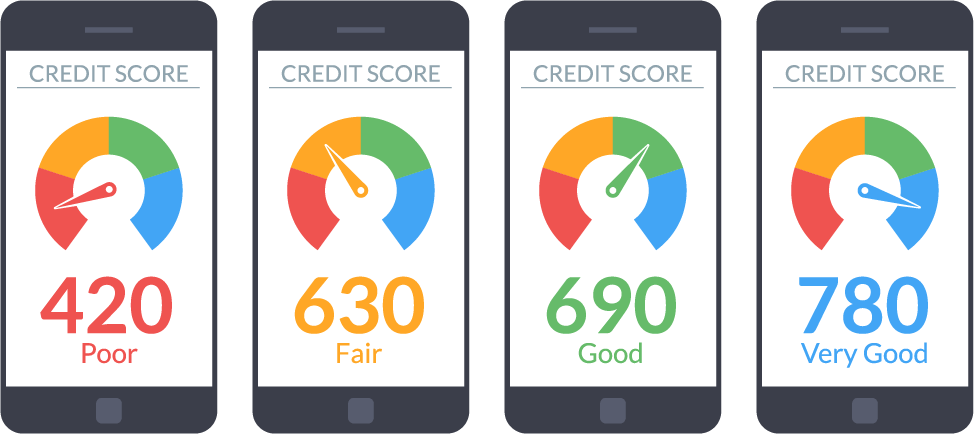Here’s a typical scenario: You and your spouse are applying for a mortgage loan. You’ve had credit for years with three or four credit cards, a car loan and a line of credit. You always pay the minimum obligation, and always on time. Your spouse, on the other hand, doesn’t use much credit, perhaps has only two or three credit lines and has missed a payment or two in the past two years. The lender pulls your credit report and your spouse has a higher score than you. Here’s why that happens.
First of all, a credit report is a “snapshot” of your credit history. The report includes personal information, employment information, credit information, information about judgments and collections, as well as a list of companies that have requested a credit report.
Your credit score is a number from 300 to 900, which the lender uses to determine your risk factor. For example, a score of 680 means 680 people out of 900 are likely to repay their debt.
So, how do the credit bureaus determine these scores?
Five Factors Credit Bureaus Use to Determine Your Credit Score
1. Payment history makes up 35% of your credit score.
This first factor, and the most important one, is how you pay your debts. Every time you make a payment or miss a payment, the credit bureau records that information on your credit file. The two credit bureaus, Equifax and TransUnion, receive information every month from creditors and scores fluctuate up or down depending on that information.
2. How much you owe accounts for 30% of the credit score.
Lenders will look at how much is already outstanding to see if you can manage more debt. Another aspect of this part of your credit score reflects how much of your available credit limits you use on an ongoing basis.
For example, you have two credit cards with a limit of $1000 each, for a total of $2000, which is referred to as the global limit. You owe $500 on one card and $800 on the other. That debt load is 65% of the global limit. You decide to pay off the card with a $500 balance and close the account. That reduces the global limit to $1000 with an $800 balance. Now the percentage of debt is up to 80% and your credit score takes a hit. The ideal percentage between global limit and debt owed is 30% to 35% – the lower, the better.
3. 15% of your credit score is based on the length of credit history.
The longer you’ve had credit, the better the picture a lender has of how you manage your debt. So, if you’re new to credit, your score may be high but your overall report will be weak. Lenders like to see two years of activity.
4. 10% of the score is based on new credit applications.
If you’re just starting to build your credit, there will be new applications. Lenders are looking for “credit shoppers” – those who frequently apply for new credit, which could signal financial troubles.
5. 10 % of the score is based on types of credit.
Different types of credit show how you handle your money overall. Although this accounts for 10% of your score, it is the least important unless there’s not a lot of history. For example, if you have a deferred payment plan, it might mean you couldn’t save enough to purchase the item at the time. Or a consolidation loan might mean you couldn’t manage your money.
Credit Bureaus & You
The two credit bureaus, Equifax and TransUnion calculate the above factors a bit differently and each lender decides how they will interpret the scores. Lenders will also consider your income, your assets, how long you have been at your job and the reason why you are applying for credit.
To learn more about credit scores and how they effect your mortgage contact me today. If necessary, we can build a plan to start improving your credit and getting you closer to your dream home!







